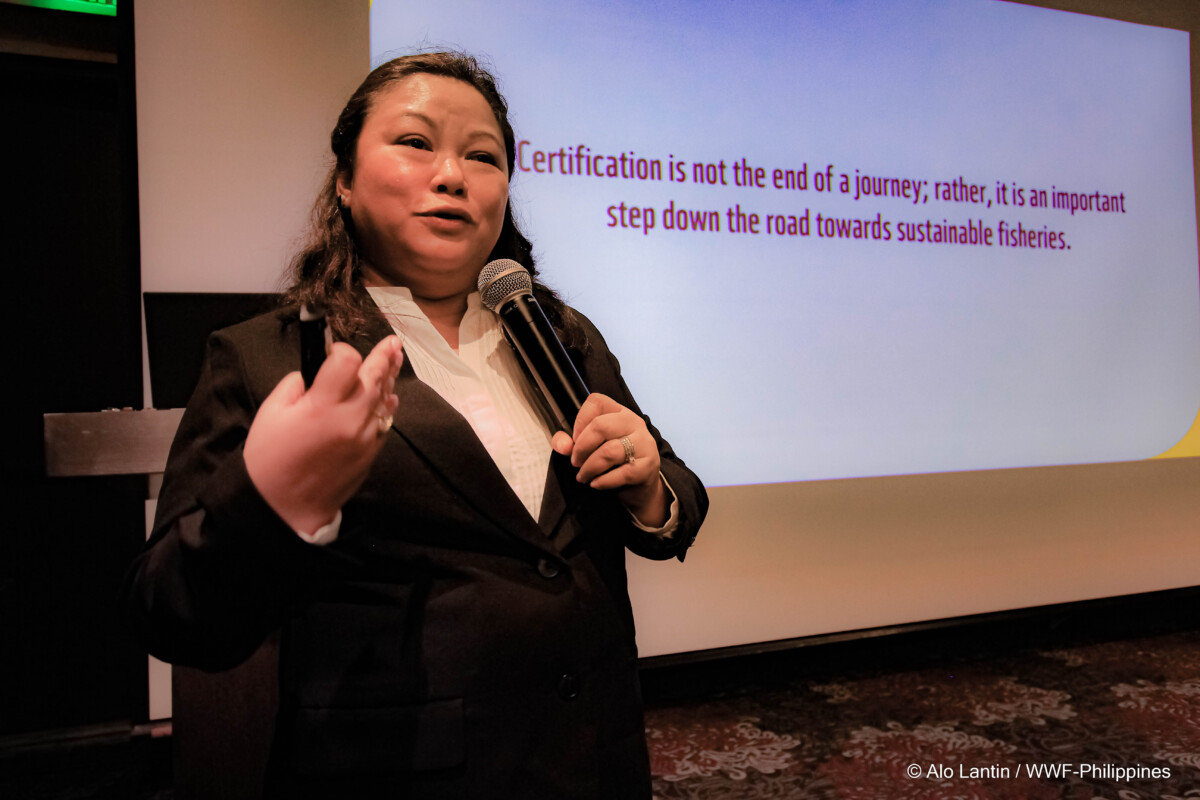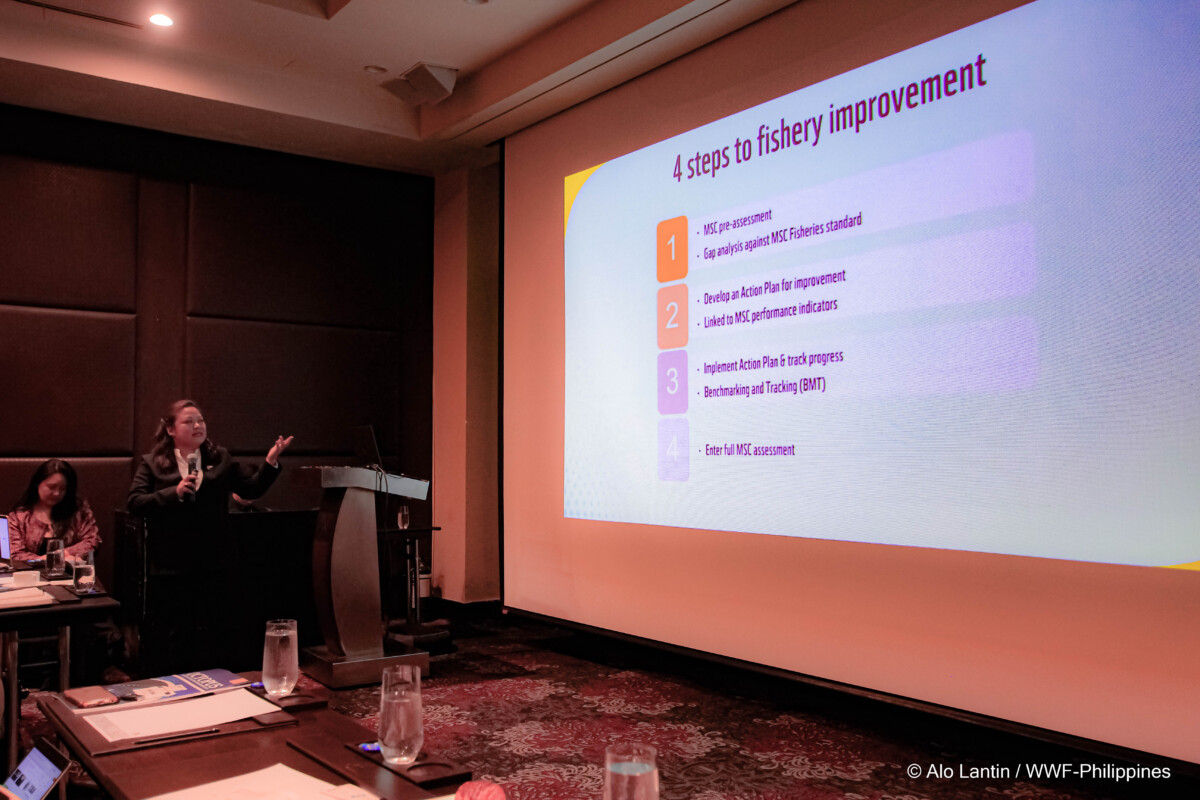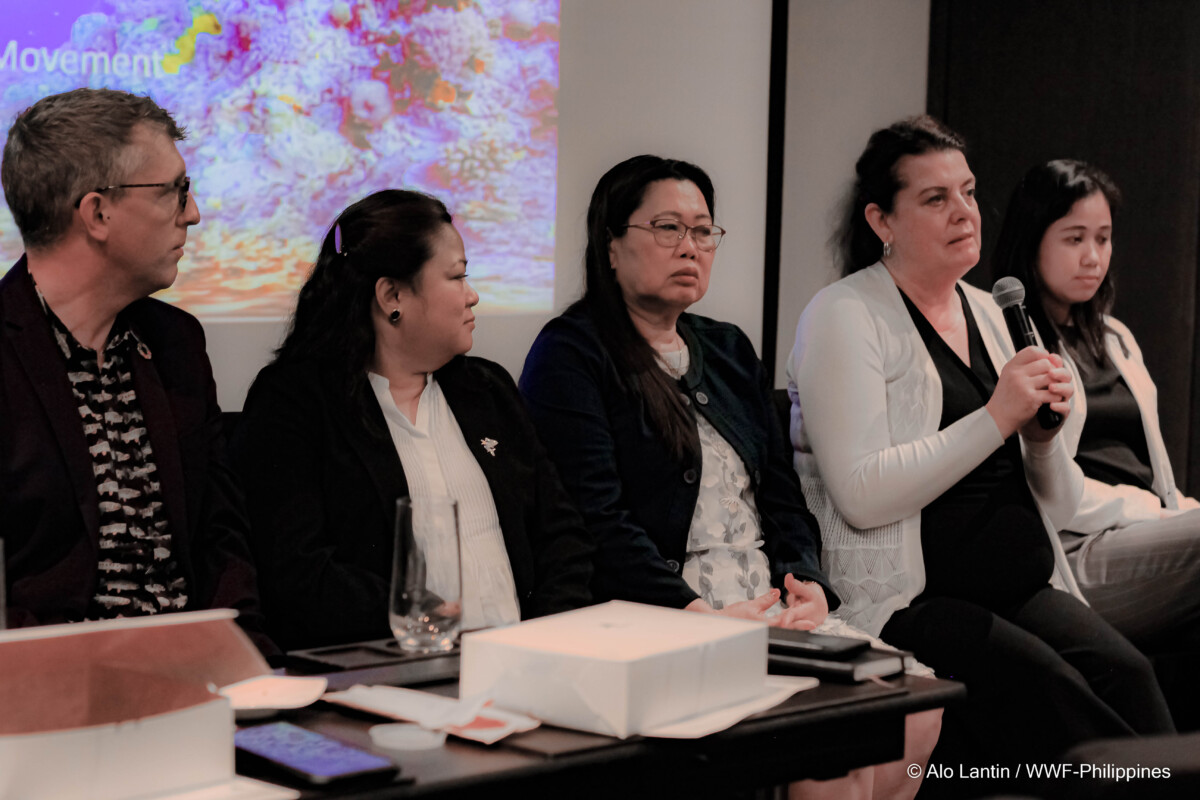WWF-Philippines shares a decade of sustainable fisheries work at the Manila Sustainability Event 2023
June 2023

WWF-Philippines STP 2 Program Manager Joann Binondo shares her experiences working with the handline tuna fishers of the Lagonoy Gulf and Mindoro Strait. Photograph © Alo Lantin / WWF-Philippines
Manila - WWF-Philippines’ Sustainable Tuna team shared their experiences with representatives from the Hotels, Restaurants and Catering (HoReCa) industry during an event at the Manila Marriott Hotel on the 16th of June.
Hosted by SeaTrace International, the Manila Sustainability Event 2023 was an opportunity for the service sector and for conservation NGOs to discuss best practices in making supply chains more sustainable. The event brought together conservation experts and service indusstry representatives to discuss both plastic waste reduction, urban farming and sustainable seafood.
Among WWF-Philippines’ advocacies is the sustainable management of the countries’ fisheries. The Sustainable Tuna Partnership (STP) program works with handline fishers in the Lagonoy Gulf and Mindoro Strait toward the improved management of local fisheries.
Though WWF-Philippines works closely with fishers, the conservation organization also engages stakeholders across the supply chain. For WWF-Philippines, ensuring environmental sustainability means embedding improved practices throughout the entire supply chain.

Joann Binondo discusses the steps toward conducting a successful fishery improvement program. FIPs are a way for fishery stakeholders to develop and maintain sustainable fisheries. Photograph © Alo Lantin / WWF-Philippines
“Globally we recognize that our oceans are faced with significant trouble,” shared Marine Stewardship Council (MSC) Senior Fisheries Program Manager for Asia Pacific Matt Watson.
“We need sustainability plus now. We need to look at the whole supply chain,” added SeaTrace International Managing Partner and COO Christian Schmidradner.
WWF-Philippines STP Program Manager Joann Binondo shared her experiences working with handline tuna fishers from the Lagonoy Gulf and Mindoro Strait for over a decade. Of particular interest to the audience was the MSC certification that was awarded to WWF-Philippines’ fishery partners in 2021 - the first of its kind for the Philippines.

A panel of fisheries experts share tools and tips on how to sustainably manage a fishery.
Photograph © Alo Lantin / WWF-Philippines
As well as being crucial to accessing markets in Europe, Binondo stated that the MSC certification is an indicator of the progress made by the tuna fishers of Bicol and Mindoro towards building sustainable fisheries. Binondo also stressed WWF-Philippines’ goal to go beyond the MSC ecolabel in supporting and empowering small-scale fishers.
Binondo also urged Filipinos to purchase sustainable seafood.
“I hope that with this event we can build local demand for sustainable seafood,” shared STP 2 Program Manager Joann Binondo. “As we always say, you not only eat good and sustainable seafood, but you are supporting our small scale fishers, too.”
For more information, please contact:
Ms. Joann Binondo
Overall Project Manager
Sustainable Tuna Partnership (STP)
jbinondo@wwf.org.ph
For media arrangements, please contact:
Ms. Chezka Guevarra
Assistant Manager | External Communications and Ambassador Programs
cguevarra@wwf.org.ph
